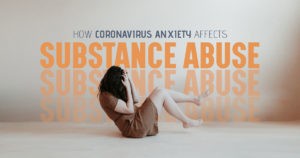Social anxiety disorder is a struggle. During the holidays, dealing with this disorder can be even more difficult. People are expected to gather together in their homes or go out to restaurants, concerts, and other activities during the winter months. People with social anxiety disorder typically fear or experience stress related to social activities. Such activities include parties, dating, family get-togethers, meeting new people, eating in front of others, entering a room where other people are, and even everyday activities such as going to work or school. When this condition is not addressed, it can lead to a person avoiding all activities and social interactions.
Social anxiety symptoms include difficulty breathing, rapid heartbeat, lightheadedness, dizziness, and digestive issues such as upset stomach and diarrhea. Like symptoms that occur during a panic attack, they often leave a person so stressed out that they are either extremely uncomfortable during the entire social event or flee the scene altogether. If the symptoms frequently occur during social situations, the individual may begin to refuse all such invitations.
The Holidays
People who deal with social anxiety often dread the holiday season due to how often they are expected to encounter others. Thanksgiving dinner, opening presents with family, visits to extended family members, traveling, and shopping in large crowds all present a challenge to anyone suffering from social anxiety. The pressure is on to be sociable and friendly during holidays like Thanksgiving, Christmas, Hanukkah, and New Year’s Eve. This pressure makes it challenging to explain why an individual might not be willing to attend a dinner, party, or public social outing. For some, anxiety about the event starts weeks in advance, leaving them completely stressed out when the event arrives.
Tips for Dealing with the Anxiety
While seeking treatment from a professional to manage and overcome a social anxiety disorder is recommended, it’s helpful to have a few tricks to use when stressful situations are unavoidable. If a person is attending a get-together in someone else’s home, volunteer to help the host. Tasks that involve concentrating on something else, such as fixing drinks or setting the table, help focus the mind. This can automatically reduce stress levels.
If someone who knows about the person’s struggle with a social anxiety disorder is present, they can pull them aside and let them know they need some support. A quiet, reassuring conversation away from the main activity can help, as well as just knowing that someone is in their corner.
If things feel overwhelming, a person can retreat to the bathroom, an unused room in the house, or go outside. They can use this opportunity to practice breathing techniques, choose a positive affirmation on which to focus or listen to a favorite song with an upbeat message or sound.
One thing that strikes fear into many people with a social anxiety disorder is talking to others. Plot out conversational questions in advance to help reduce the stress of speaking with others. If you know your cousin just started a new job, think of a couple of questions to ask. If your friend’s child has a birthday coming up, ask about plans for a party or what sort of gifts she knows her child will enjoy. If you have a new hobby, tell someone and ask if they have any experience with it.
While it’s crucial for a person to push themselves to get out and not altogether avoid all social situations, everyone has a right to decide what schedule is right for them. People often want to say yes to every party invitation. Still, over-scheduling can lead back to the stress a person is trying to alleviate. Write out a list of what parties, meals, and shopping trips are on the agenda, then decide which ones you are willing to attend.
Some traditions that take place every year may be worth going to, such as Thanksgiving at the grandparents’ house, but keep an open mind to trying something new. If a co-worker is having a tree-decorating party or a neighbor with kids will be serving hot cocoa and cookies, consider giving those occasions a try. Being around children can often serve as a fun distraction, allowing a person to relax more in what would typically be a high-stress situation.
It’s important to practice self-care no matter what time of year, but it's even more critical during a rash of anxiety-producing events. Self-care can involve things like making sure to shower regularly and get some exercise. Continue to go to any regular therapy or medical appointments and take any prescribed medications regularly.
Having a social anxiety disorder makes any social event difficult for those dealing with one, but the holiday season can be incredibly stressful. The pressure is on to host or attend several meals, get-togethers, parties, and public outings, all of which cause panic for those who live with social anxiety. Silver Lining offers a comprehensive plan of treatment to assist those who want to reclaim their lives and not be negatively impacted by the holidays. We offer groups that fit your schedule, including day or evening. We limit the number in each of our groups to just five to give focus and individualized attention to our clients. Our Huntington Beach, California location is the perfect place to begin to address your social anxiety disorder and any co-occurring disorders, including addiction. Call us now to find out how we can help you rebuild your life free of social anxiety! (833) 844-4769.











